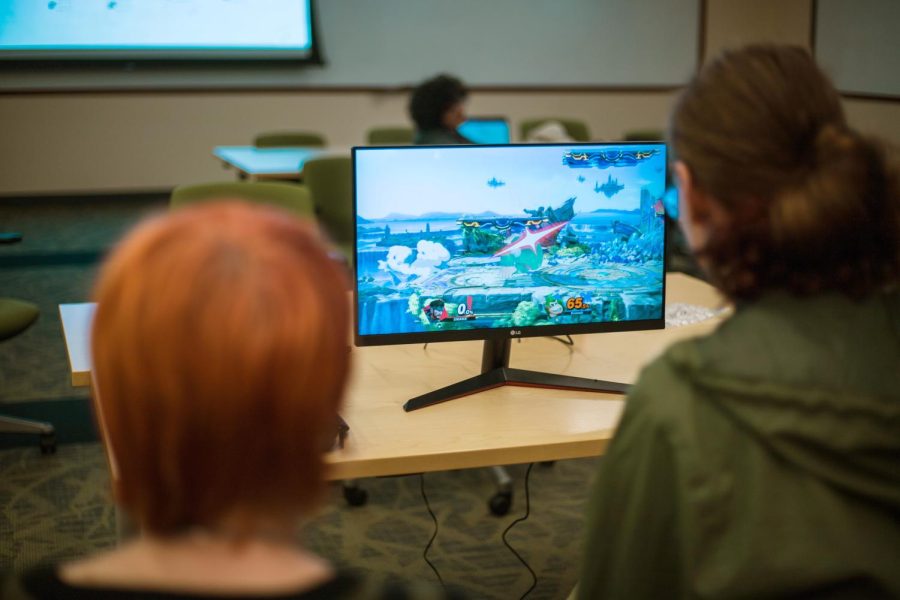Seattle U Esports and Gaming Club Hosts Final Smash Tournament of the Year
Competitors participating in the smash tournament.
The Seattle University Esports and Gaming Club (SUEG) is a staple in the school’s student body. As the largest student-run club—according to their ConnectSU page—at Seattle U, SUEG’s events draw students in droves to compete or just game together casually.
Last Friday, bringing people together was the theme as the club hosted their final quarterly Super Smash Bros. Ultimate tournament of the year called the “Link Link,” a nod to the Legend of Zelda protagonist and Smash character, Link.
On the first floor of the Lemieux Library in the Boeing Room, 18 club members and non-members alike competed in the tournament, playing the wildly-popular Nintendo Switch fighting game. There were also a variety of other draws, such as jersey and sticker giveaways as well as free snacks for all attendees.
While SUEG sends those who join certain competitive game-specific teams, like Valorant, League of Legends, Overwatch and others to compete in regional Esports tournaments, the Smash tournament is meant to be the opposite.
Michael Albert, a second-year anthropology and sociology double major and SUEG’s competition officer, oversees the Esports side of the club. But Albert clarified that the club organizes the tournament every quarter with far more than simply competing in mind.
“When we set up the Smash competitions, we’re not trying to be like a professional organization,” Albert said. “We’re honestly trying to do this to stimulate community… Competition is not for everyone, but gaming is.”
So, you might wonder: Why not just have a meeting instead? Why all the fanfare around a tournament?
SUEG has had similar questions in the past, opting to simply bring monitors and consoles to any space they could reserve before the opening of the Esports room.
That approach brought folks to events, according to Albert, but rarely had them interact with others outside the group they came with. Creating a tournament where participants have a set reason to interact—competition—has done wonders for the community-building aspect of these events.
In fact, outside of rented monitors, courtesy of UREC, and Albert’s personal Switch, the gaming consoles and controllers were crowd-sourced—participants were asked to bring their own.
Bjorn Benson, a first-year international studies major, used to compete in competitive Smash tournaments. Due to factors like COVID-19, however, they have been unable to go to such tournaments. That changed when they attended the tournament on Friday.
“I wanted to have an excuse to play Super Smash Brothers, my favorite game, with people again,” Benson said. “The fact that they asked people to bring stuff in, and the people did, and that it’s only existing because people want to play the game, is nice.”
Once the tournament got underway, the atmosphere was casual. Competitors chatted during their matches, only pausing to go into a silent focus when games came down to the wire. Between matches, participants used free consoles to play friendly matches and socialized with their opponents.
First-year Marketing major Chase Diamond took home the win in the tournament, but admired the friendly atmosphere at the event.
“I came into the environment ready to compete and was surprised by just how easily Smash brought everyone together,” Diamond wrote to The Spectator. “[I] loved all the energy that came in and would love for events like this to be ongoing.”
While this was the last Smash tournament of the year for SUEG, it appeared to fulfill its purpose. While the number of competitors dropped from their first tournament in the fall, the community engagement is apparent.
From bringing their own consoles and controllers to simply spending a Friday night playing Super Smash Bros. with fellow club members, SUEG showed why they have a growing community on campus at the Link Link.


